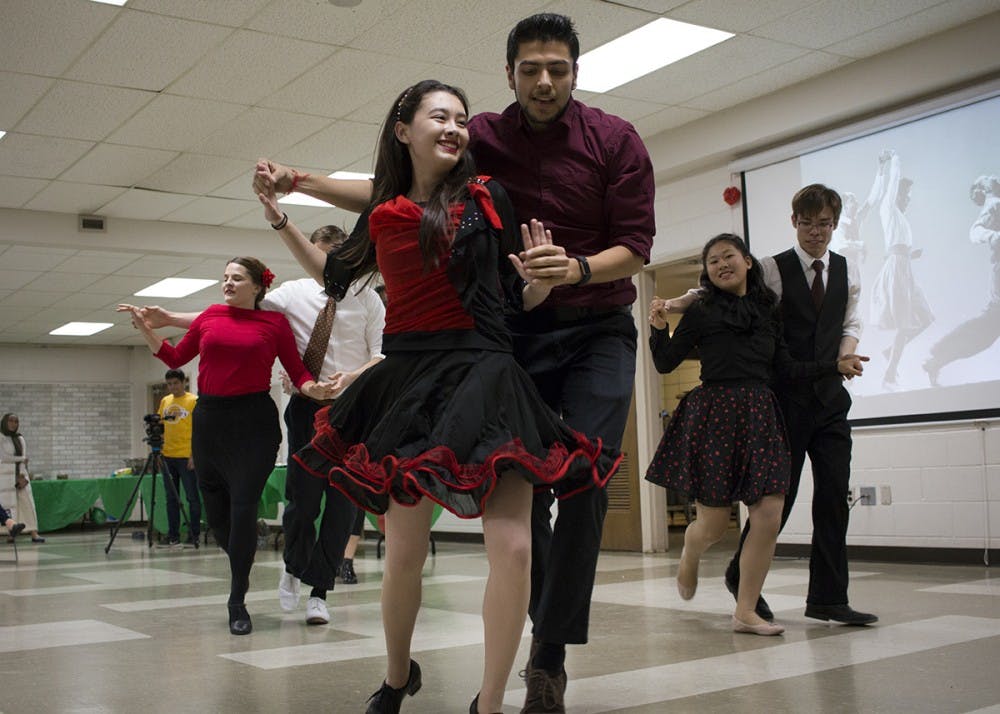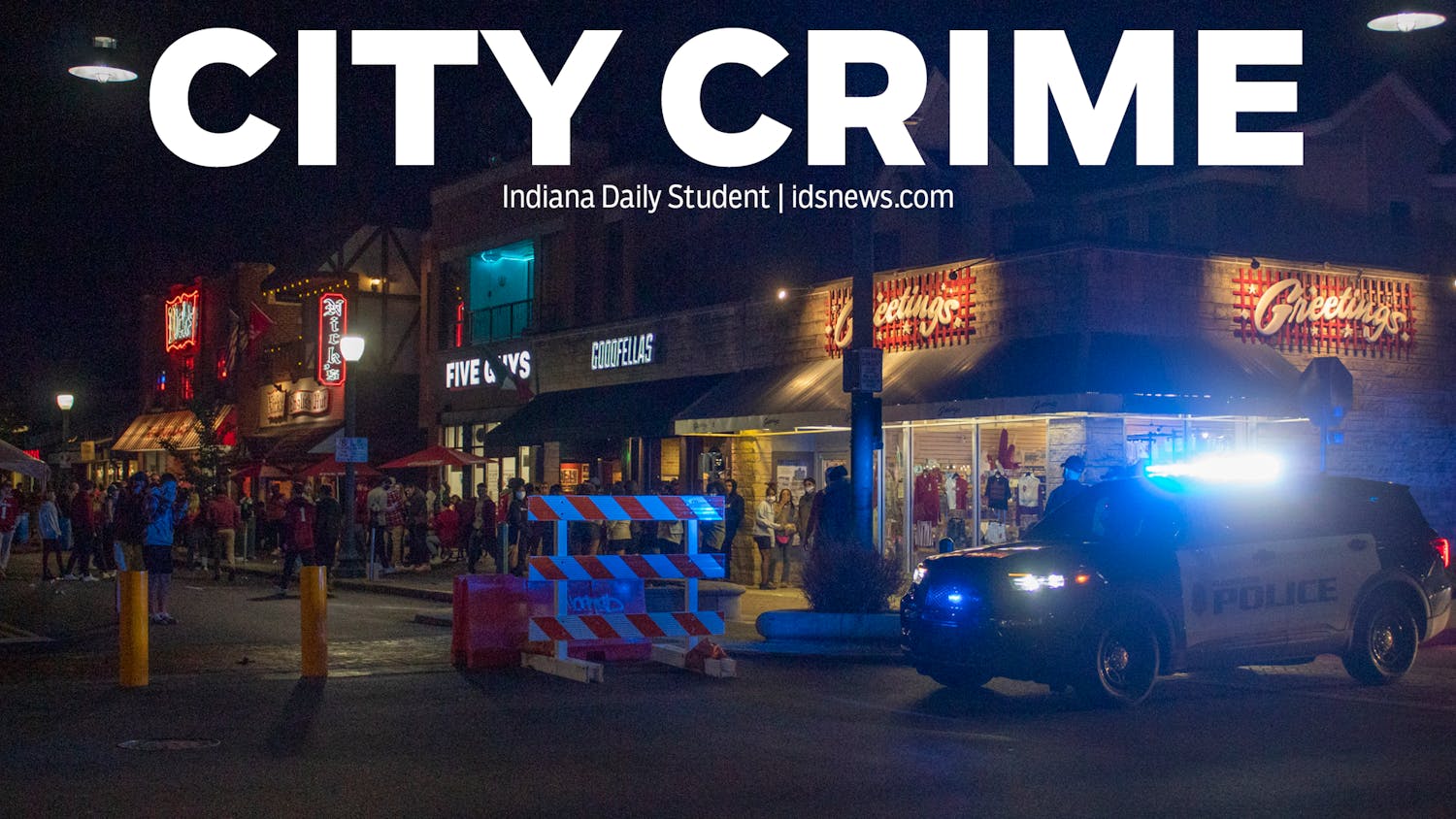In the basement of the St. Paul Catholic Center, Gustav and German Carmona sat with their families. They talked and laughed over blaring Spanish music. A little more than a year ago, their families were escaping Venezuela’s political turmoil.
The Bloomington Refugee Support Network and the Muslim Student Association organized the event at the St. Paul Catholic Center to provide donations for around 15-20 Venezuelans seeking asylum in the United States. Community cultural dance groups performed while people ate food from around the world.
Savannah Powell, sophomore and volunteer at the Bloomington Refugee Support Network, said she wanted to show the families that they were welcome in light of recent anti-refugee rhetoric.
"We decided this would be a great way to welcome them to the community, to make them feel accepted by the community and show that the community wants them to be here,” Powell said.
More than 50 people attended the event. Paper Venezuelan flags were the centerpiece of every table. Red, blue, yellow and green balloons hung from the ceiling and a whiteboard read “Welcome,” in green block letters and “Bienvenidos” in red.
Entry cost $5 for students and $10 for non-students. Altogether, the event raised $626 for the families, according to a post by Powell on the event’s Facebook page. Food was donated from family and friends of event organizers as well as Sofra Cafe and Anatolia.
Powell said donations are particularly vital because all of the families are asylum seekers, meaning the families came here on travel visas and applied for asylum as political refugees once they arrived.
"There's no infrastructure to help asylum seekers,” Powell said. “There's no one to help them get clothes or food, and they can't work for six months. They have no way to support themselves.”
Powell began the event by welcoming the refugees in both Spanish and English. Shortly after, the first dance group took the stage. Throughout the night, swing, Polynesian dance, salsa and kizomba, a dance originating in the African nation of Angola, were performed.
Most of the refugee families who attended spoke little or no English. Powell said that the longest any family had been in America was just over a year.
Gustav and German Carmona are some of the few who were able to speak English. The brothers said they fled to the United States because it became too dangerous to demonstrate against the government in Venezuela.
“The situation is getting worse every day,” German Carmona said. “We had trouble finding even the basic things like food, medicine, the normal things we need to live."
German Carmona said they knew they needed to flee when people who were protesting against the government began being kidnapped and killed.
“We are a big part of the group that is against the government,” German Carmona said. “We can't just do nothing. We walked in so many marches and protests. They threaten us. If you don't leave, you put your family in danger."
Both German and Gustav said they feel welcome in Bloomington.
“Bloomington is a great city,” Gustav Carmona said. “It is the right place for my daughters because it is a safe city. The people here, you can find so many cultures, so many different people of other countries.”
German Carmona said that they still have family in Venezuela and hope to return someday. Now, though, some family members are trying to come to them. Their mother and oldest brother are hoping to come to the United States this December.
Sophomore Sarah Kawamleh, an event organizer and member of the Muslim Student Association, said that she hoped the event would help the community see that refugees are regular people just like them.
“Everybody forgets that refugees have lives and they have jobs and they have their own communities,” Kawamleh said. “Them coming to our country doesn't mean that they pose a threat to our own cultural and religious identities. It just means that we could be greater together.”
Senior Amani Karim, who attended the event, said she thinks it’s important to support refugees, especially if they are in your own community.
“It’s important to make people feel welcome, and I think dancing and food is a good way to do that,” Karim said.




